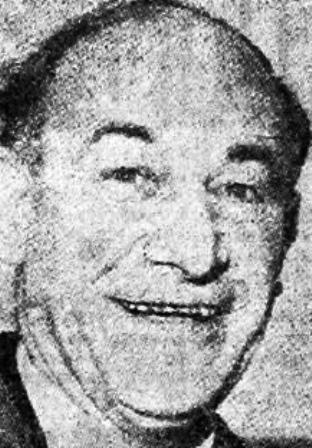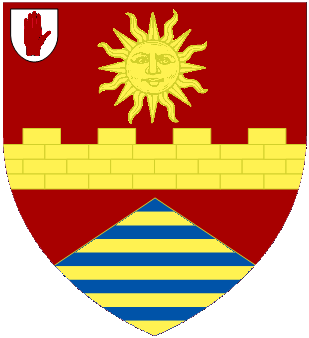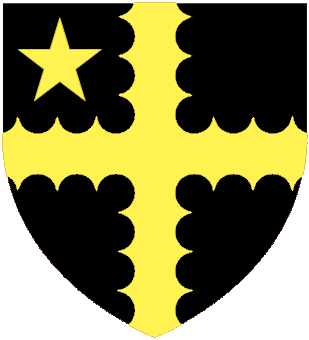|
Anthony Barber (other)
Anthony Perrinott Lysberg Barber, Baron Barber, (4 July 1920 – 16 December 2005) was a British Conservative politician who served as Chancellor of the Exchequer from 1970 to 1974. After serving in both the Territorial Army and the Royal Air Force during the Second World War, Barber studied at Oxford and became a barrister. Elected as MP for Doncaster in 1951, Barber served in government under Harold Macmillan as Economic Secretary to the Treasury and Financial Secretary to the Treasury, before being appointed Minister of Health by Alec Douglas-Home in 1963. After losing his seat in 1964, he won the 1965 by-election in Altrincham and Sale and returned to Parliament. Barber was appointed as Chancellor of the Exchequer by Edward Heath in 1970, and oversaw a major liberalisation of the banking system, replaced purchase tax and Selective Employment Tax with Value Added Tax, and also relaxed exchange controls. During his term the economy suffered due to stagflation and industri ... [...More Info...] [...Related Items...] OR: [Wikipedia] [Google] [Baidu] |
The Right Honourable
''The Right Honourable'' (abbreviation: The Rt Hon. or variations) is an honorific Style (form of address), style traditionally applied to certain persons and collective bodies in the United Kingdom, the former British Empire, and the Commonwealth of Nations. The term is predominantly used today as a style associated with the holding of certain senior public offices in the United Kingdom, Canada, New Zealand, and, to a lesser extent, Australia. ''Right'' in this context is an adverb meaning 'very' or 'fully'. Grammatically, ''The Right Honourable'' is an adjectival phrase which gives information about a person. As such, it is not considered correct to apply it in direct address, nor to use it on its own as a title in place of a name; but rather it is used in the Grammatical person, third person along with a name or noun to be modified. ''Right'' may be abbreviated to ''Rt'', and ''Honourable'' to ''Hon.'', or both. ''The'' is sometimes dropped in written abbreviated form, but is ... [...More Info...] [...Related Items...] OR: [Wikipedia] [Google] [Baidu] |
Edward Boyle, Baron Boyle Of Handsworth
Edward Charles Gurney Boyle, Baron Boyle of Handsworth, (31 August 1923 – 28 September 1981), known as Sir Edward Boyle, 3rd Baronet, between 1945 and 1970, was a British Conservative Party politician and Vice-Chancellor of the University of Leeds. Early life and career Boyle was born in Kensington, London, the eldest son of Sir Edward Boyle, 2nd Baronet, and succeeded to his father's baronetcy in 1945.Oxford Dictionary of National Biography accessed 26 July 2009 He was educated at Eton College and graduated from Christ Church, Oxford, in 1949 with a third-class BA (later converted to an MA) in history. From 1942 to 1945, he was a temporary junior administration officer at the Foreign Office. He worked at Bletchley Park in intelligence.University of Leeds Library Catalogue of Correspondence of Ed ... [...More Info...] [...Related Items...] OR: [Wikipedia] [Google] [Baidu] |
Member Of Parliament (United Kingdom)
In the United Kingdom, a Member of Parliament (MP) is an individual elected to serve in the House of Commons of the United Kingdom, House of Commons, the lower house of the Parliament of the United Kingdom. Electoral system All 650 members of the UK House of Commons are elected using the first-past-the-post voting system in single member United Kingdom Parliament constituencies, constituencies across the whole of the United Kingdom, where each constituency has its own single representative. Elections All MP positions become simultaneously vacant for elections held on a five-year cycle, or when a snap election is called. Since the Dissolution and Calling of Parliament Act 2022, Parliament is automatically dissolved once five years have elapsed from its first meeting after an election. If a Vacancy (economics), vacancy arises at another time, due to death or Resignation from the British House of Commons, resignation, then a constituency vacancy may be filled by a by-election. Un ... [...More Info...] [...Related Items...] OR: [Wikipedia] [Google] [Baidu] |
Shadow Secretary Of State For Trade
A shadow is a dark area on a surface where light from a light source is blocked by an object. In contrast, shade occupies the three-dimensional volume behind an object with light in front of it. The cross-section of a shadow is a two-dimensional silhouette, or a reverse projection of the object blocking the light. Point and non-point light sources A point source of light casts only a simple shadow, called an "umbra". For a non-point or "extended" source of light, the shadow is divided into the umbra, penumbra, and antumbra. The wider the light source, the more blurred the shadow becomes. If two penumbras overlap, the shadows appear to attract and merge. This is known as the shadow blister effect. The outlines of the shadow zones can be found by tracing the rays of light emitted by the outermost regions of the extended light source. The umbra region does not receive any direct light from any part of the light source and is the darkest. A viewer located in the umbra region can ... [...More Info...] [...Related Items...] OR: [Wikipedia] [Google] [Baidu] |
Shadow President Of The Board Of Trade
The shadow secretary of state for business and trade is an office within British politics held by a member of His Majesty's Most Loyal Opposition. The duty of the office holder is to scrutinise the actions of the government's Secretary of State for Business and Trade, secretary of state for business and trade and develop alternative policies. The office holder is a member of the Official Opposition Shadow Cabinet (United Kingdom), Shadow Cabinet. The position is currently held by Andrew Griffith. List of shadow secretaries Shadow Secretary of State for Industry and Technology & President of the Board of Trade References {{UK Parliament Opposition Cabinet Offices Official Opposition (United Kingdom) ... [...More Info...] [...Related Items...] OR: [Wikipedia] [Google] [Baidu] |
Keith Joseph
Keith Sinjohn Joseph, Baron Joseph, (17 January 1918 – 10 December 1994), known as Sir Keith Joseph, 2nd Baronet, for most of his political life, was a British politician. A member of the Conservative Party, he served as a minister under four prime ministers: Harold Macmillan, Alec Douglas-Home, Edward Heath, and Margaret Thatcher. He was a key influence in the creation of what came to be known as Thatcherism. Joseph introduced the concept of the social market economy into Britain, an economic and social system inspired by Christian democracy. He also co-founded the Centre for Policy Studies writing its first publication: ''Why Britain needs a Social Market Economy''. Early life Joseph was born in Westminster, London, to a wealthy and influential family, the son of Edna Cicely (Phillips) and Samuel Joseph. His father headed the vast family construction and project-management company, Bovis, and was Lord Mayor of London in 1942–3. At the end of his term he was crea ... [...More Info...] [...Related Items...] OR: [Wikipedia] [Google] [Baidu] |
John Peyton, Baron Peyton Of Yeovil
John Wynne William Peyton, Baron Peyton of Yeovil, (13 February 1919 – 22 November 2006) was a British Conservative politician. He was Member of Parliament for Yeovil for over 31 years, from 1951 to 1983, and an early and leading member of the Conservative Monday Club. He served as Minister of Transport (later renamed Minister of Transport Industries in the Department of the Environment) from 1970 to 1974. He was a candidate for leader of the Conservative Party in 1975, losing to Margaret Thatcher. Early years Peyton was born in Mayfair in 1919, and was educated at Eton College. As a member of the Eton OTC, he was a member of the honour guard within the grounds of Windsor Castle at the state funeral of King George V in 1936. He read law at Trinity College, Oxford, from 1937, but took a commission in the 15/19 Hussars in 1939 on the outbreak of World War II. He was sent to France as part of the British Expeditionary Force, but was captured in Belgium in May 1940, and spe ... [...More Info...] [...Related Items...] OR: [Wikipedia] [Google] [Baidu] |
Shadow Minister For Power
A shadow is a dark area on a surface where light from a light source is blocked by an object. In contrast, shade (shadow), shade occupies the three-dimensional volume behind an object with light in front of it. The cross section (geometry), cross-section of a shadow is a two-dimensional silhouette, or a reverse Projection (linear algebra), projection of the object blocking the light. Point and non-point light sources A point source of light casts only a simple shadow, called an "umbra". For a non-point or "extended" source of light, the shadow is divided into the Umbra, penumbra and antumbra, umbra, penumbra, and antumbra. The wider the light source, the more blurred the shadow becomes. If two penumbras overlap, the shadows appear to attract and merge. This is known as the shadow blister effect. The outlines of the shadow zones can be found by tracing the rays of light emitted by the outermost regions of the extended light source. The umbra region does not receive any direct ... [...More Info...] [...Related Items...] OR: [Wikipedia] [Google] [Baidu] |





